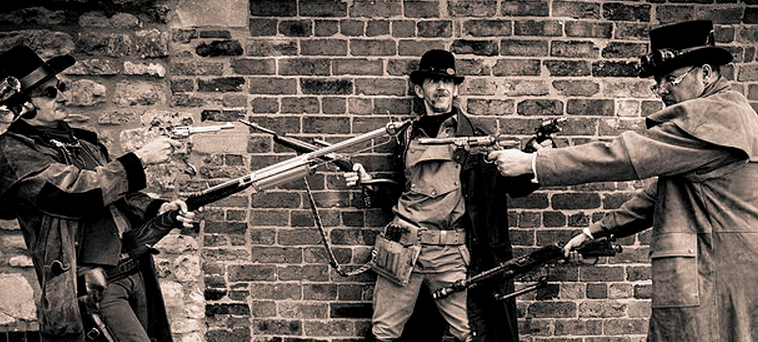Mexican standoff is a term we use quite often in popular culture. But have we ever thought it might be derogatory, insulting and rude to some people? In the past several years, the dilemma whether Mexican standoff is a racist term or not has grown. Both sides have strong argumentation, so let’s take a look at why some people consider the term to be racist, and why some people don’t. In the simplest terms, a Mexican standoff is a situation in which there is no clear winner. What would have it happened if we call it “US Standoff”?
Let’s take a look at the definition, which reads:
“A Mexican standoff is most precisely a confrontation among three opponents. The tactics for such a confrontation are substantially different than for a duel, where the first to shoot has the advantage. In a confrontation among three mutually hostile participants, the first to shoot is at a tactical disadvantage. If opponent A shoots opponent B, then while so occupied, opponent C can shoot A, thus winning the conflict. Since it is the second opponent to shoot that has the advantage, no one wants to go first.”
Derogatory to Mexican People?
There are some people that believe that the usage of the word is derogatory to Mexican people. However, an educated individual can always look at the history of the phrase, the definition of the term, and everything else. The conclusion should be that the phrase is obviously not a derogatory to Mexican people. However, since there is always ignorance and over-sensitivity, especially when racism is in question, one can expect ignorance of the facts, and opinions based on emotions.
Why People Think Mexican Standoff is Racist?
The biggest reason why some people consider the term “Mexican standoff” to be racist is the meaning of the phrase. A regular standoff is a condition, a temporary impasse, which always ends with surrender from one of the sides. Mexican standoff, on the other hand, is a standoff with no clear resolution. Therefore, some people consider it “inferior”. And the math goes “Mexican + inferior = racism”.
Origin of the word
Several sources suggest that the word “Mexican” in the phrase Mexican standoff origins from the 19th century. Back in that time, Mexican bandits were running away from a fair fight, therefore, the term “Mexican standoff”.
However, there are other sources that point to the fact that the term was used in the same way as many other terms containing the word “Mexican in the US slang”. For example, Mexican bankroll means “one large denomination bill wrapped around a roll of smaller bills”. Another popular phrase is “Mexican athlete”, which suggests a “phony braggart”. The goal behind the terms is to suggest that Mexican people, as such are inferior, fraudulent, as well as market by poverty. The term “Mexican standoff” just the latest example of shameful words used in the same principle. The word doesn’t have any actual connection with Mexico.
Etymology and Popular Use
According to the Cambridge Advanced Learner’s Dictionary, the term Mexican Standoff has an Australian origin. There are sources that claim that the etymology comes from the Mexican-American War and the post war bandits in Mexico.
The term has been part of popular culture as well, mainly the Cold War, a situation in which neither the United States nor the Soviet Union made a clear move. Both sides had equal power, but neither advanced its position.
Mexican Standoff has also been used in financial circles, where it shows a situation in which “one side wants something, a concession of some sort, and is offering nothing of value. When the other side sees no value in agreeing to any changes, they refuse to negotiate.”
In cinematography, Sergio Leone was the first one to introduce the term in his classic Western movie, “The Good, the Bad and the Ugly”.



